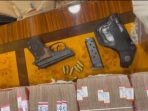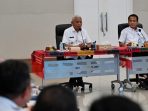BPS DATA for February 2023 shows that 57.62% of workers in North Sumatra are in the informal sector. A sector that prioritizes ability and skills in this work, compared to an educational background.
Recently it has been under pressure, and I conclude it is one of the triggers for the weakening of the purchasing power of the people of North Sumatra.
From my observations, it was found that there was a decrease in the income of a number of informal workers in North Sumatra. Pedicab drivers are the samples that I have observed in the last 4 years.
And the result is a decrease in income in the range of 46% to 66%, when comparing the average income in 2019 (before the pandemic) with income in 2023. And the income still has to be deducted by operational costs.
Even during the Covid-19 pandemic (2020 to mid-2022), the income of pedicab drivers had fallen by 70% to 88%, compared to the average in 2019.
And this year, a number of pedicab drivers stated that after May 1, 2023 or the long holiday period is over. They claim that their income could decline again. Although further observations are still being made and I have not come to a certain conclusion.
In addition, when conducting a sales survey for clothing needs (clothing and footwear). The majority or around 73% of traders (business/shop owners) are considering reducing the number of their employees. Triggered by the decline in turnover that occurred recently.
And other findings such as street vendors, builders, housemaids, butchers, public transportation drivers, home-based entrepreneurs and many other informal workers need to be studied about their economic conditions.
As far as I can see, they are indeed continuing to work and continue to work for a living. However, this picture is not a complete picture regarding their financial condition. Especially for those who are forced to lose their income or even lose their jobs. We have to let go of the assumption that as long as they work, their income is maintained.
Working in the informal sector has fluctuating income at any time. And unfortunately their current income fluctuations tend to weaken or fall. So that it is vulnerable for informal workers to enter the ranks of the poor, whose expenditure is below the poverty line.
The government needs to record them, so that there are effective policy references to maintain the purchasing power of these informal workers.
In contrast to formal workers who are recorded, have income certainty so it is often easy to get a picture of their economic condition. However, informal workers have different characteristics and they are the majority workers in North Sumatra. We should know the economic conditions they are experiencing, and what efforts can be made to maintain their purchasing power. (Author: Gunawan Benjamin, Economic Observer from the Islamic University of North Sumatra)







